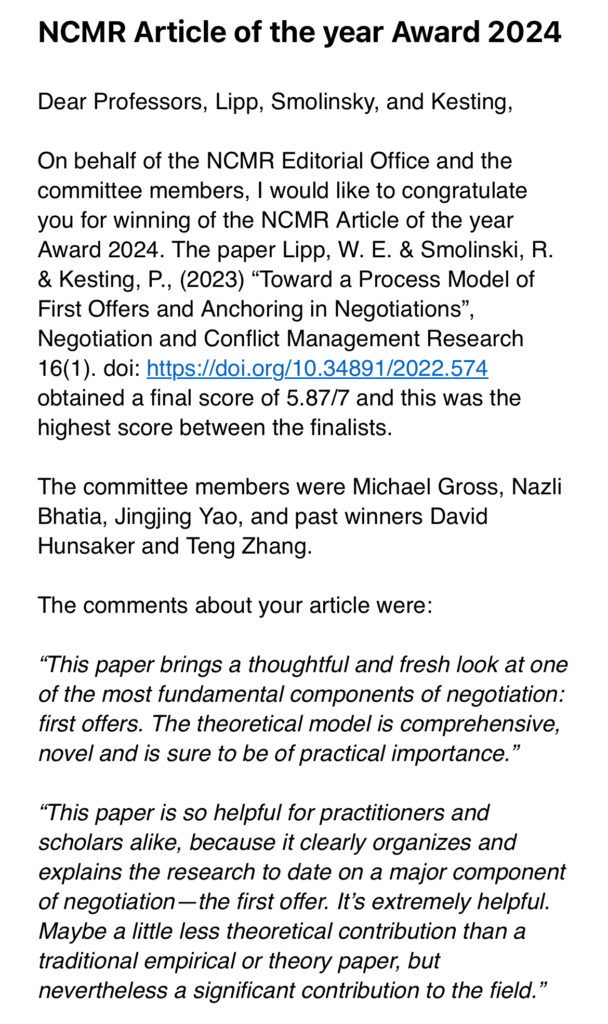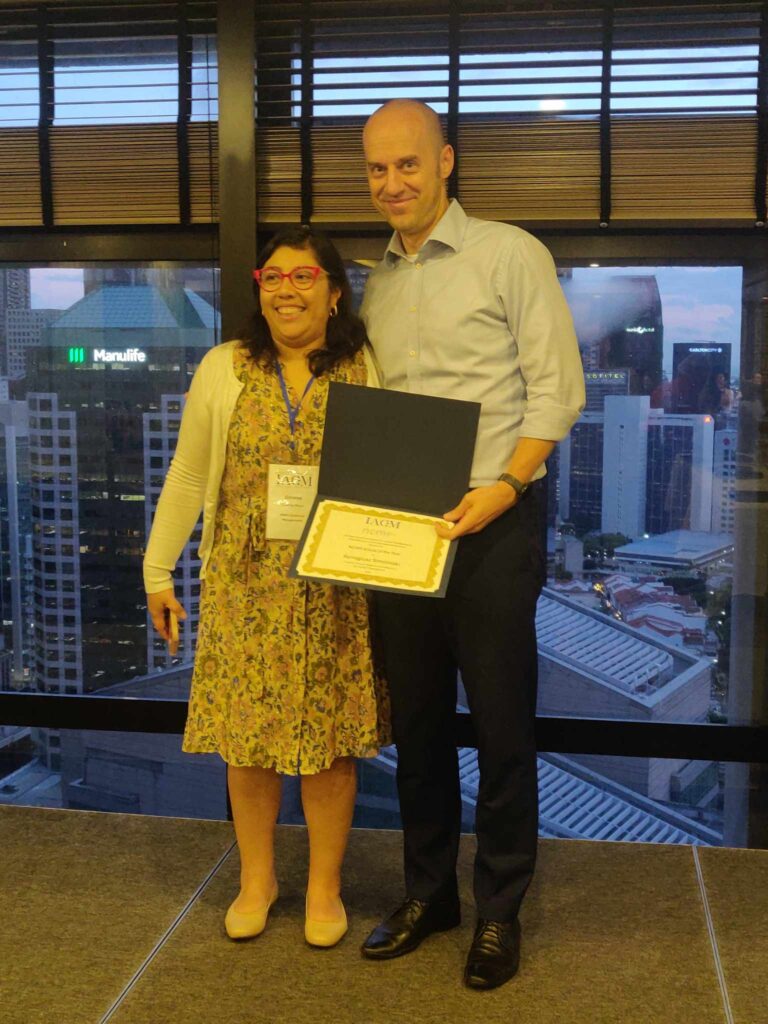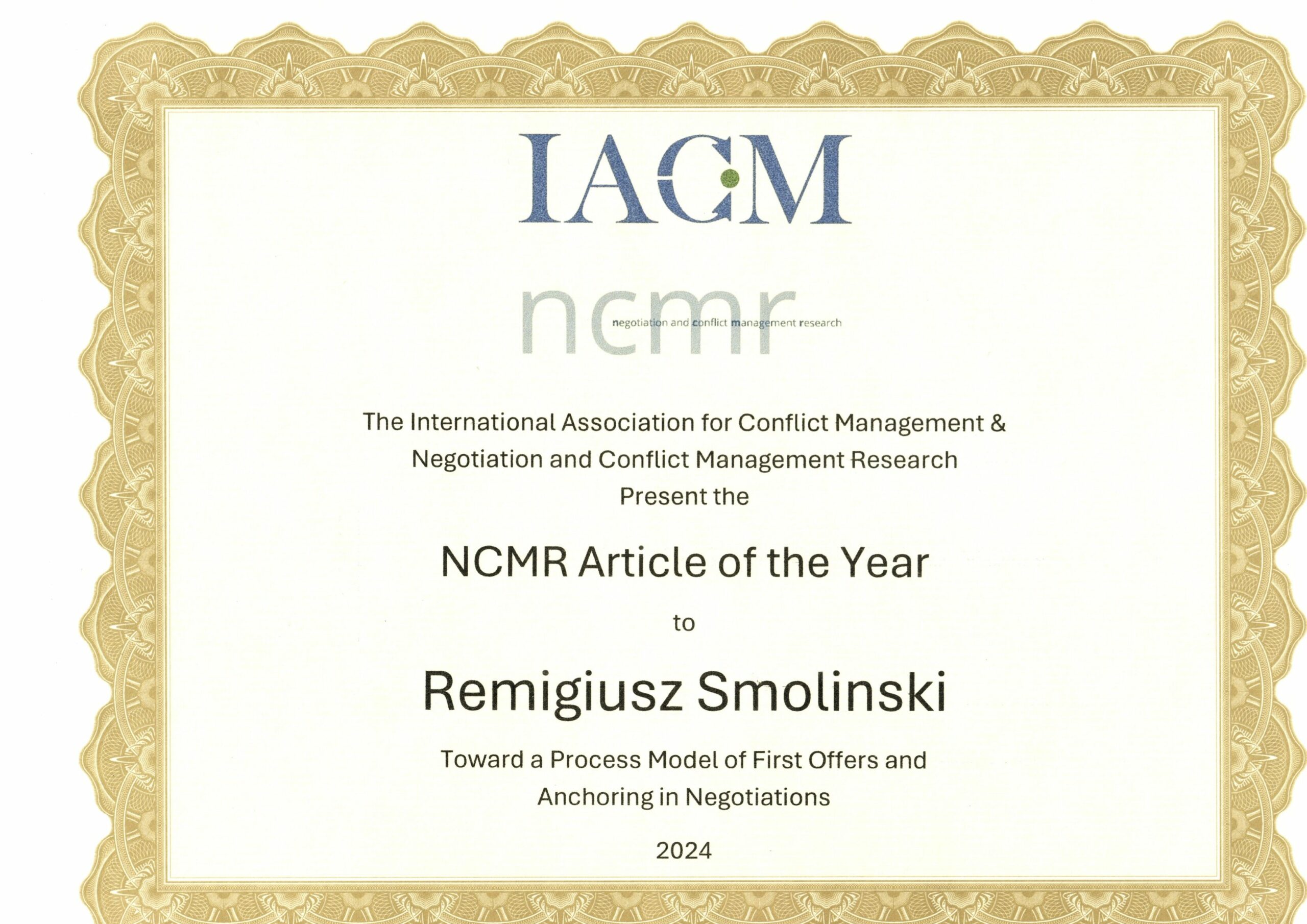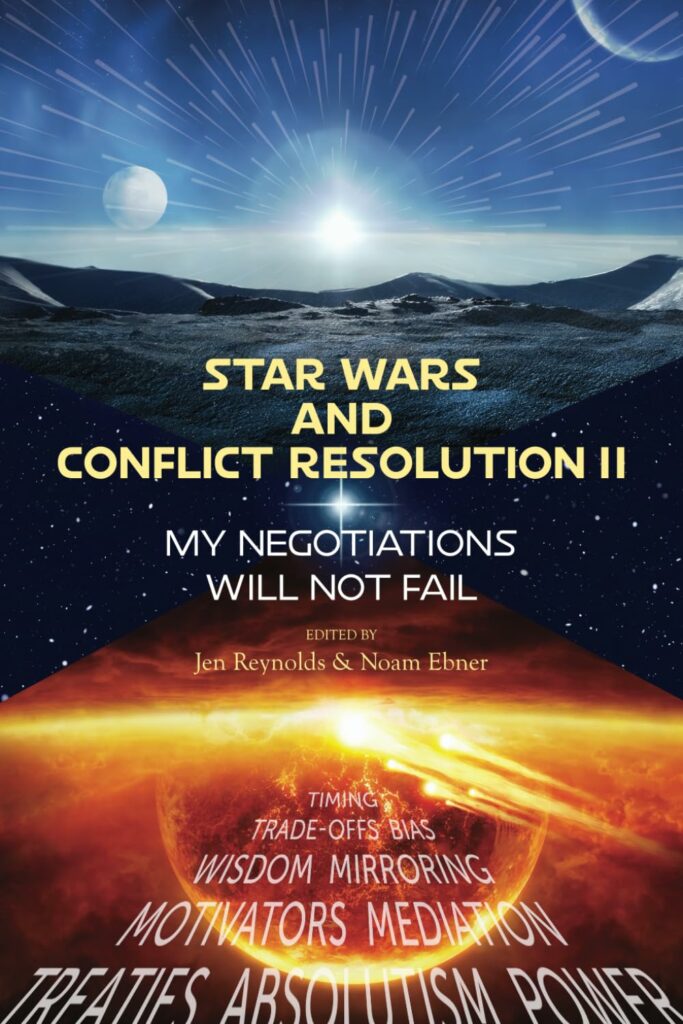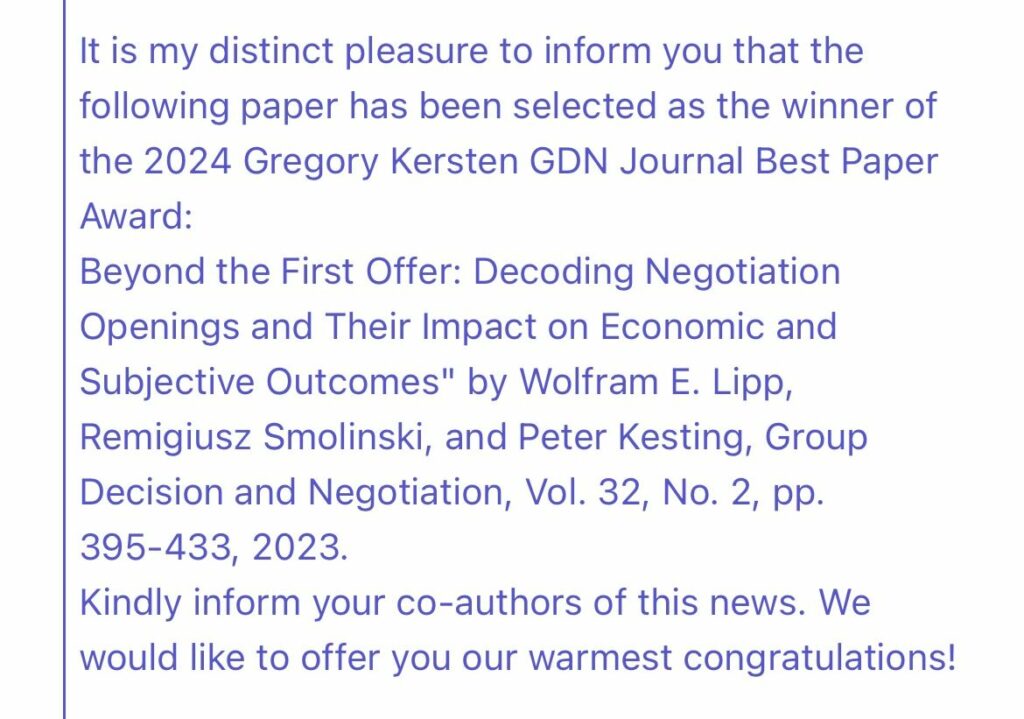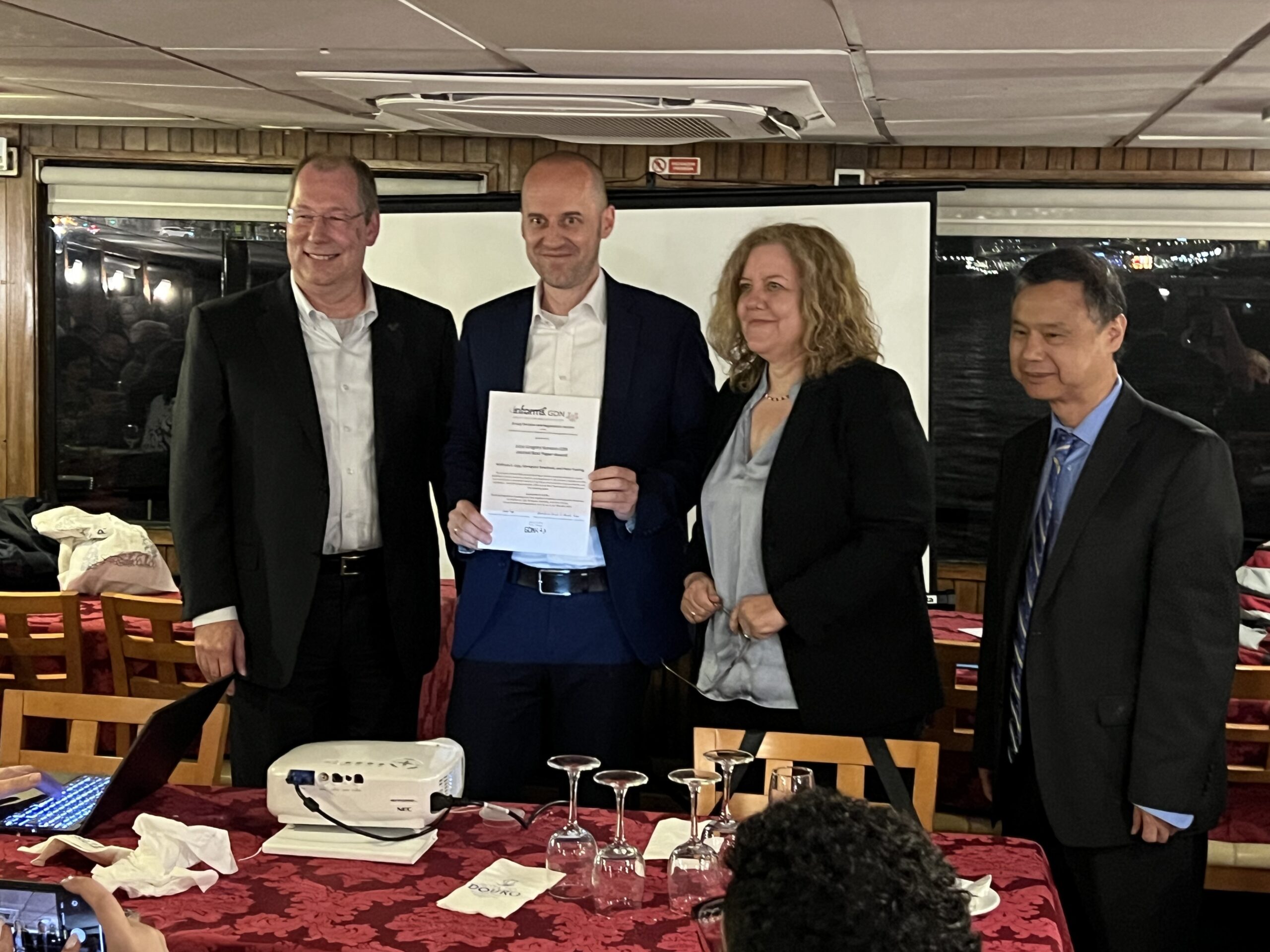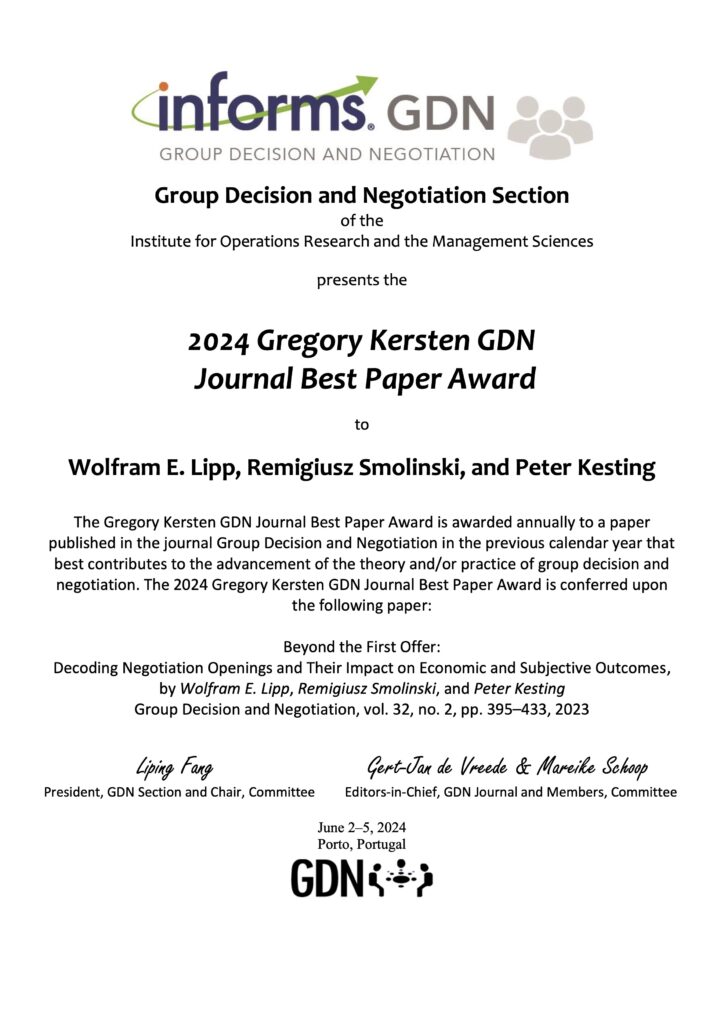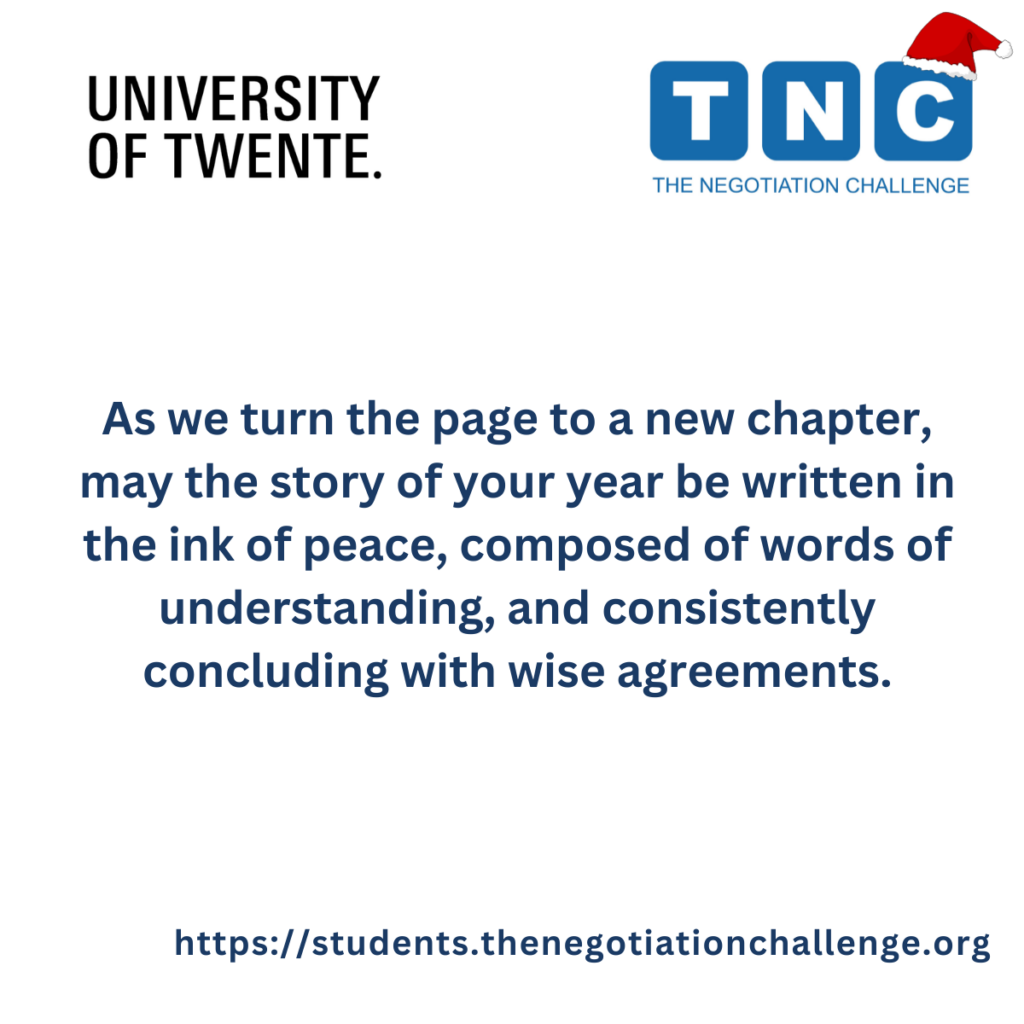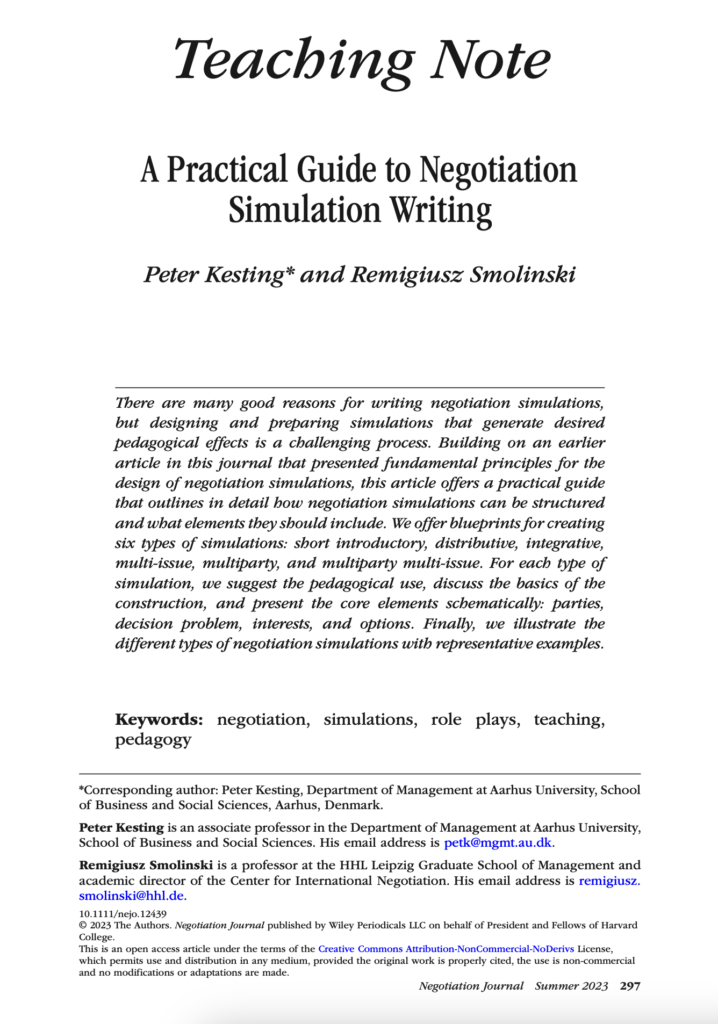We kindly invite scholars to submit their original work to the Sustainability and Negotiation Special Issue hosted by the Negotiation Journal.
Call for Papers
Special Issue of the Negotiation Journal
SUSTAINABILITY AND SOCIALLY RESPONSIBLE NEGOTIATION
Are negotiation theory, practice, and pedagogy up to the task of ensuring that all negotiations: public and private, and whether or not explicitly focused on an issue of sustainability, address sustainability in socially responsible ways? This special issue invites original and rigorous scholarship that addresses whether and how our contemporary frameworks for interest-based negotiations can, do, or should take broader societal interests into account.
Overview
Sustainability, defined as fulfilling present needs without compromising the ability to meet future needs, is a crucial topic in contemporary research and discourse. Since 2020, over a million publications on sustainability have been indexed by Google Scholar, reflecting its growing prominence.
Negotiation can play a critical role in advancing sustainability goals. Well-designed processes can help to foster collaboration, reconcile diverse interests, and open creative space to address complex environmental, social, and economic challenges. This is perhaps most visible in the context of long, multi-stakeholder negotiations seeking progress on sustainability issues. But it also occurs in simpler, bilateral negotiations when social responsibility and sustainability are criteria for wise and just decision making.
This positive role for negotiation in sustainability emerged from a shift in theory, conceptualized by Mary Parker Follett a century ago and then revitalized most prominently by Fisher et al. (1982), that emphasized joint problem-solving over positional bargaining. This interest-based approach, which seeks efficient outcomes that satisfy all parties’ preferences and needs, has shaped the contemporary field of negotiation.
However, the emerging consensus that all actors share social responsibility for sustainability outcomes introduces new challenges for negotiation theory, practice, and pedagogy. Conventional approaches prioritize the interests of those at the table, and thus may overlook broader impacts on third parties, future generations, or the environment. Agreements that emerge may inadvertently perpetuate social and environmental harm, neglect historical injustices, or reinforce imbalances of power and oppression, for example, racism, sexism, or structural violence, even while meeting the articulated interests of the parties to that agreement.
These issues raise fundamental questions about how to ensure all stakeholders’ interests, including those not at the table, are integrated into negotiations. To achieve truly sustainable outcomes, negotiation processes must account for long-term impacts on a broad array of affected groups and societal interests.
This call builds from the proposition that such socially responsible negotiations that dependably consider and effectively address sustainability interests may well require new theory, frameworks, mechanisms, and approaches. These may need to address diverse perspectives on social responsibility; systemic inequalities; how to avoid reproducing historical injustices; or how to incorporate social value into even private negotiations. Additionally, insight is required on how to manage the friction and transaction costs that may accrue as parties pursue more inclusive and socially responsible agreements in a shift from optimizing private value to optimizing broader social value.
Scope and Objectives
This special issue of the Negotiation Journal seeks to explore these complexities at the intersection between sustainability and negotiation. At this intersection sit negotiations directly about sustainability, such as those over climate risk mitigation or advancement of the Sustainable Development Goals. But in a socially responsible world, so do negotiations on other matters, for example, commercial or financial transactions, governmental or inter-governmental policy making, or political mobilization and institutional change, even though sustainability may not be explicitly recognized or articulated as an interest by the parties.
Thus, submissions should offer new perspectives on whether and how sustainability interests, whether environmental, social, political, economic, or cultural, are or can be addressed in both public and private negotiations, even when sustainability is not the explicit focus.
We invite scholarly work that draws on diverse disciplines, such as environmental studies, political science, economics, sociology, psychology, or law. Interdisciplinary perspectives that bridge these or other academic inquiries to negotiation frameworks are especially welcome. Contributions may be conceptual, theoretical, empirical, or pedagogical.
Contributions must be intellectually rigorous, linking to existing scholarship or identifying and bridging gaps to build the intellectual capital of the negotiation field. They must also provide practical insights for negotiation scholarship, practice, or pedagogy.
Potential Topics
We encourage submissions on a wide range of topics related to sustainability and negotiation, illuminating both the strengths of dominant paradigms as well as more critical perspectives. Potential topics include (but are not limited to) the following:
- Scholars have shown the adaptability of the construct of interests by stretching it to include, for example, emotions, identity, justice, inclusion, basic human rights, or the shadow of the past. What are the consequences: positive or negative, intentional or not, of this broad view of interests? What might be alternative framings of what is and is not the subject of negotiations at the table? Where might there be useful extensions to negotiation scholarship with respect to interests?
- Some sustainability issues, whether protection of the environment, worker health and safety, or indigenous rights, have been effectively enough socialized that they are broadly seen as interests to be considered even in private negotiations. What are the processes and dynamics which determine whether and how interests are considered or excluded from consideration in negotiations? The extent to which recognized interests are respected and advanced in practice?
- Some scholars have asserted that the interest-based negotiations can be a power balancing tool, focusing parties on forward looking problem solving rather than on what they demand others do. Other scholars point out how negotiations outside the shadow of the law, in the context of oppressive laws, or where there are distinct inequalities can constitute a form of structural violence that legitimizes the taking of the lion’s share. How do we better understand and address the dilemmas inherent in this debate?
- Negotiation scholarship intersects with other disciplines in demonstrating the superior value that can be created through the inclusion of diverse voices and perspectives. Yet representativeness of a broad range of perspectives and representation of potentially conflicting constituencies pose practical challenges. There are also challenges of unit of analysis, for example, between the strategic goals of individuals at the table vs the well-being of the community. How do we better conceptualize and operationalize how interests are given voice in negotiations? How are friction costs and transaction costs are managed?
- Diverse domains, such as stakeholder theory, organizational behavior, peace and conflict studies, ethics, social psychology, political economy, and others, speak to how social, environmental, cultural, political, and economic sustainability are or are not conceptualized and operationalized at interpersonal, organizational, inter-organizational, and societal levels. Where might negotiation studies have blind spots that may be addressed through attentiveness to well-grounded propositions from related scholarship?
The overarching goal is to build towards a more comprehensive framework for negotiation theory, research, practice, and pedagogy that addresses the social responsibility of negotiators for sustainability interests.
Guest Editors
- Brian Ganson – Centre on Conflict & Collaboration, Stellenbosch University, South Africa – bganson@sun.ac.za
- Mara Hernández Estrada – Universidad Nacional Autónoma de México – mara@dialogica.com.mx
- Peter Kesting – Aarhus University, Denmark – petk@mgmt.au.dk
- Remi Smolinski – HHL Leipzig Graduate School of Management – remigiusz.smolinski@hhl.de
For further inquiries, please contact any member of the guest editorial team.
Submission Guidelines
We anticipate one or more paper development workshops on the topic of the Special Issue. One is already scheduled for the at INTRA Conference at the University of Cape Town in February 2025. Others will be announced. Participation in a PDW is neither a requirement for submission nor any guarantee of special consideration for inclusion. Rather, we hope that you will join like-minded scholars in a process of collegial reflection and constructive feedback that will inevitably shape stronger papers.
Authors should submit their manuscripts through the Negotiation Journal’s online submission system. Please ensure that your submission adheres to the Journal’s formatting and style guidelines.
We eagerly anticipate your submissions and the opportunity to advance the dialogue on sustainability and socially responsible negotiation.
Timeline
- Call for Papers issued – September 2024
- Submission of abstracts for the paper development workshop at INTRA Conference at the University of Cape Town – February 2025
- Paper development workshop at INTRA Conference – April 24, 2025
- Paper development workshop at the European Negotiation Conference – June 5-6, 2025
- Paper development workshop at AOM Meeting – July 25-29, 2025
- Paper submission deadline – September 30, 2025
- Peer review process – October-December 2025
- Decision notification – December 2025
